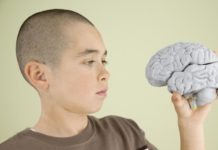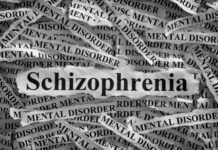This is the Truth About Personality Disorders
From The Independent: Armchair diagnoses of personality disorders are a rising trend, from speculations that President Trump has narcissistic personality disorder to viral articles about discerning...
Risk of Suicide After Hospitalization Even Higher Than Previously Estimated
New analysis of post-discharge suicide rates finds estimates 6 times higher than recent studies.
Antidepressants Increase Risk of Death, Study Finds
Antidepressants are commonly considered safe and effective treatments. However, research has questioned their efficacy, and now, their safety.
Evidence That More Psychiatry Means More Suicide
This has got to stop. Around the world a million people die from suicide each year and the response internationally is to pour more funding and channel more people into psychiatric services. Three large studies have now found that the more we spend on mental health services the higher our suicide rates. In addition, a recent study has completely discredited claims that 90% of those who die from suicide are mentally ill at the time of their death. We need to use this evidence to stop the expansion of psychiatry as a suicide prevention measure.
Children with ‘ADHD’ Commonly Prescribed Antipsychotics
Despite little evidence for benefit, and substantial risk of harm, antipsychotics are commonly prescribed to children diagnosed with ADHD
Researchers Warn of “Brain Atrophy” in Children Prescribed Antipsychotics
Researchers discuss the evidence that antipsychotic medications may cause brain atrophy in children, whose brains are still developing.
Suicide in a Culture of Mandated Happiness – Who’s to Blame?
We live in a culture of mandated positivity and compulsory happiness, which somehow remains untouched by the current political, social, ecological and economic realities of the world. If you’re distressed, it must either be your bad attitude (which is a choice) or your broken brain (which is not a choice); god forbid we look anywhere outside the self.
The Scarlet Label: Close Encounters with ‘Borderline Personality Disorder’
To help my non-recovery oriented colleagues understand the stigma/resentment associated with ‘borderline personality disorder,’ I simply mention this: “Let’s say I call you and say, ‘Hey, I’ve got a referral for you. She’s been diagnosed with borderline personality disorder . . .’” I need to go no further; without fail, my colleague will smile or laugh. We both know that such a referral is a no-no, so much so that it doesn’t even have to be mentioned; it is a given.
Psychiatry, Society and Stigma: Placing the Blame Where It Belongs
I believe that those who understand psychiatry’s self-serving claims and want to be most effective in a campaign of re-education must never lose sight of the critical role of language in the forming of public opinion. Here I will use the example of stigma to illustrate psychiatry's “War of the Words.”
De-Othering “Schizophrenia” by Placing it in Socio-Historical Context
Understanding schizophrenia as a non-enigmatic, understandable human experience goes against a history of institutional “othering” that has sustained psychiatric legitimacy and further marginalized service-users.
The Violence-Inducing Effects of Psychiatric Medication
On May 17, 2017, we learned that Chris Cornell of Soundgarden had reportedly committed suicide by hanging. Perhaps an “addict turned psychiatric patient,” like so many, Chris Cornell seemed to have left the frying pan of substance abuse for the fire of psychiatric medication risks.
Researchers Make the Case to Rename Schizophrenia
The authors outline reasons for renaming schizophrenia and the way a change can reform practice.
It’s the Coercion, Stupid!
Both Michel Foucault and Thomas Szasz dated the beginnings of a distinct Western institutional response to madness to the late 1500s-early 1600s. But while for Foucault it started in France with the creation of the public “hôpital général” for the poor insane, for Szasz it began in England with the appearance of for-profit madhouses where upper class families shut away inconvenient relatives. Regardless of their different ideas on the beginnings of anything resembling a mental health system, both authors agree that it was characterized by the coercive incarceration of a specially labeled group.
My Story of Benzo Withdrawal and Activism
My story starts in 1976. I had a nervous breakdown whilst studying for my Accountancy Technician examination. I was then prescribed a series of benzodiazepine/anti depressant drugs for 5 years. I have been campaigning for the last 28 years at local, national and international level on this public health scandal and government cover-up. The following questions need to be asked to those responsible: Why have the doctors and psychiatrists ignored the 1988 Committee on Safety of Medicines Guidelines on the prescribing of benzodiazepines? Why are the same physicians making the same mistakes with the newer drugs?
Belongingness Can Protect Against Impact of Trauma, Study Suggests
A new study explores feelings of belongingness as a protective factor for childhood trauma and adult mental health outcomes.
A Clinical Social Worker’s Bane
We have all become assembly line workers in the factory of mental health. At the facility, I put in at least 50 hours and live with a constant dread of not having clicked a button, of not having made another phone call, of overlooking the sadness in someone’s eyes. The risk of burnout or empathy fatigue is high, yet the machine hums along.
DeJarnette Sanitarium
From Atlas Obscura: In the 1930s, hundreds of people with mental disabilities committed to the now abandoned DeJarnette Sanitarium were forcibly sterilized and experimented on by the hospital's eugenicist namesake.
Combining Art Therapy and Mindfulness for Refugees
A new article, published in The Arts in Psychotherapy, describes the ways art therapy and mindfulness have benefitted refugees and asylum seekers in Hong Kong.
Dehumanization Linked to Poorer Mental and Physical Health
A new review finds that dehumanizing language, including self-dehumanization, is connected to anxiety, depression, and disordered eating.
Researchers Question Link Between Genetics and Depression
A new study, published in the journal Molecular Psychiatry, found no link between genetics and the occurrence of depressive symptoms.
The Creativity and Suicide of Robin Williams: A Phenomenological Study
My purpose in writing this case study is not to suggest that creativity is a mere byproduct of trauma, or to deny the role of so-called mental illness in suicide, but to situate these phenomena within the context of human lives. To render them humanly (rather than medically) intelligible. With his mind and body disintegrating, Robin Williams took his life to thwart the eradication of self.
Safety Analysis Weighs Harms and Benefits of Antipsychotic Drugs
The researchers find that the drug effects for reducing psychosis are small and that treatment failure and severe side effects are common.
Prescripticide: A Proposal for Action and a Request for Your Help
The primary factor protecting psychiatry’s unwarranted power and authority is that it is perceived as shielding society from folks who are believed to be dangerous. It would seem, then, that one logical step toward reducing society’s trust in biological psychiatry would be to reveal the evidence of a significant correlation between the use of prescribed psychoactive drugs and the commission of violent acts against oneself or others.
Opening Doors in the Borderlands: An Interview with Liberation Psychologist Mary Watkins
MIA’s Micah Ingle interviews Mary Watkins about reorienting psychology toward liberation and social justice.
Why My Daughter Died and I Lived
To be a parent of a suicidal child is to be in a terrible position, where you hold in your hands the life most valuable to you and know that any slip of your hands may end that life. In the 1970s, my suicidality was treated nonmedically and I lived. In the 2000s, my daughter Martha’s suicidality was treated medically and she died.






























